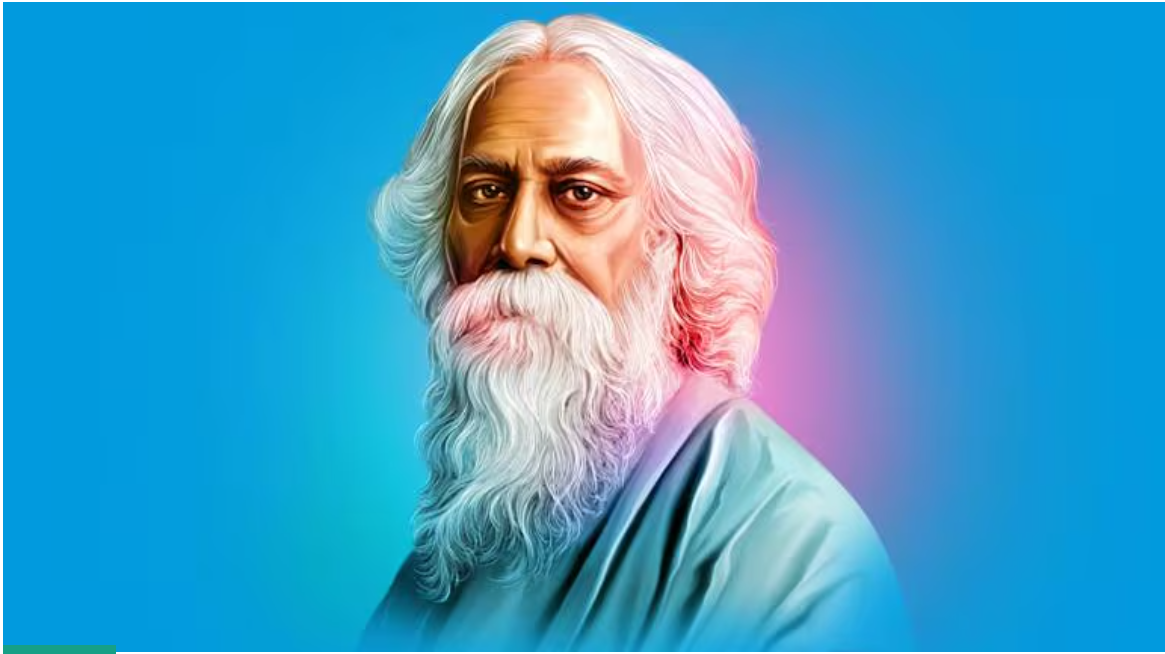Vandalism at Tagore’s Ancestral House in Bangladesh

-
Event: Vandalism at Rabindranath Tagore’s ancestral house (Kachari Bari) in Sirajganj, Bangladesh.
Rabindranath Tagore
I. Prelims Pointers
-
Full Name: Rabindranath Thakur (Tagore)
-
Born/Died: 7 May 1861 – 7 August 1941
-
Titles & Nicknames: Gurudev, Kobiguru, Biswakabi
-
Notable Awards:
-
Nobel Prize in Literature (1913) – First non-European laureate
-
-
Key Literary Works:
-
Gitanjali (Nobel-winning poetry)
-
Ghare Baire, Gora, Chokher Bali, Jogajog, Char Adhyay
-
-
Songs:
-
Jana Gana Mana – India’s national anthem
-
Amar Shonar Bangla – Bangladesh’s national anthem
-
Inspired Sri Lanka’s anthem
-
-
Art & Education:
-
Founded Visva-Bharati University at Santiniketan
-
Prolific in music, drama, and painting (esp. after age 60)
-
-
Political Acts:
-
Returned knighthood in protest of Jallianwala Bagh Massacre (1919)
-
-
Influence:
-
Inspired global figures incl. Einstein, Yeats, Gandhi, Neruda, Paz
-
II. Mains – GS Paper 1: Modern Indian History, Culture
A. Tagore’s Legacy in Indian Society & Culture
-
Bengal Renaissance Figure: Polymath who reshaped Bengali literature, music, and art.
-
Innovator: Modernised Bengali prose and poetry; broke rigid classical forms.
-
Rabindra Sangeet: 2,000+ songs merging classical ragas and folk tones.
-
Tagore’s Drama: Thematic depth in Dak Ghar, Chitrangada, Raktakarabi.
B. Political & Philosophical Ideals
-
Universal Humanism: Advocated internationalism, human unity, and cultural exchange.
-
Critic of Nationalism: Warned against aggressive nationalism (Nationalism in India essay).
-
Support for Freedom Struggle: Vocal against British atrocities; promoted education and self-reform.
C. Contributions to Education
-
Santiniketan & Visva-Bharati: Alternative education model rooted in Indian ethos, focused on harmony with nature, free inquiry, and international collaboration.
D. Global Recognition and Travel
-
Visited over 30 countries (Europe, Americas, Middle East, East Asia).
-
Interacted with leaders and thinkers like Einstein, Mussolini, Gandhi, Rolland.
-
Lectured globally on culture, nationalism, and education.
E. Literary Forms and Contributions
-
Novels: Critique of caste, gender roles, identity, and nationalism.
-
Short Stories: Introduced Bengali short story form; themes of rural Bengal, human emotions.
-
Poetry: Explored spirituality, nature, love, and social themes.
-
Art: 2000+ paintings, exhibited in Europe; used unique stylizations and symbolism.
III. GS Paper 2/4 Relevance: Ethics & International Relations
-
Cultural Diplomacy: Early advocate of East-West cultural dialogue.
-
Ethics in Public Life: Walked the talk – gave up titles, challenged orthodoxy.
-
Influence on Education Policy: Precursor to NEP’s emphasis on liberal and holistic education.
